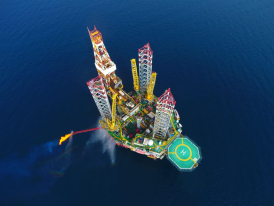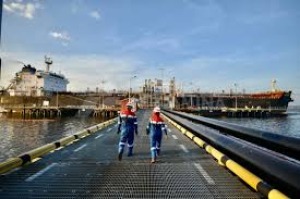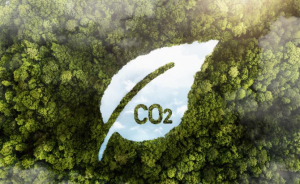Upstream oil & gas sector welcomes newly established CCS regulation
The upstream oil and gas sector players, grouped under the Indonesian Petroleum Association (IPA), has positively responded to the new Minister of Energy and Mineral Resources (ESDM) Regulation (Permen) No. 16/2024 on the Implementation of Carbon Storage Activities issued on December 24, 2024.
This regulation complements the legal framework related to Carbon Capture and Storage (CCS) which was previously regulated in Ministerial Regulation No. 2/2023 and Presidential Regulation (Perpres) No. 14/2024.
Executive Director of IPA, Marjolijn Wajong, said this new regulation is an important milestone that provides legal certainty for industry players.
"With a complete regulatory framework, business actors now have clear guidance to support the implementation of CCS as a reliable and sustainable decarbonization solution," Marjolijn said as quoted in a statement on Monday, January 6, 2025.
CCS is considered to have great potential in helping Indonesia achieve its Net Zero Emission (NZE) and Nationally Determined Contributions (NDC) targets. This technology provides decarbonization solutions for various industrial sectors, including manufacturing, power generation, refineries, petrochemicals, steel, and cement. In addition, CCS also provides opportunities for economic growth through job creation and investment in clean technology.
Indonesia has significant potential carbon storage capacity, namely up to 8 gigatons of carbon dioxide (CO2) in depleted oil and gas reservoirs and 400 gigatons in salty aquifers. According to the ESDM ministry, this potential can increase Indonesia's attractiveness as a regional carbon storage center, in line with Indonesia's commitment at COP29 to become a leader in CCS initiatives in the region.
The Indonesian government is also actively establishing regional cooperation to accelerate the development of CCS. One of the strategic measures taken is the signing of a Letter of Intent (LoI) between Indonesia and Singapore for cross-border collaboration in CCS, which allows for the transportation and storage of CO2 between the two countries. In addition, Indonesia is also exploring similar cooperation with Japan and South Korea to strengthen its position as a CCS hub in Southeast Asia.
Executive Director of the Indonesia CCS Center, Belladonna Troxylon Maulianda, said that this ESDM Regulation not only supports the clean energy transition, but also opens up greater investment opportunities.
"With this regulation, Indonesia shows its seriousness in leading the implementation of CCS in the Southeast Asia region, which will provide significant environmental, social, and economic benefits for the Indonesian people," she said.
Legal framework
Ministerial Regulation No. 16/2024 complements Presidential Regulation No. 14/2024, which regulates the national legal framework for the implementation of CCS, including licensing and supervision mechanisms. Meanwhile, Ministerial Regulation No. 2/2023 regulates the technical implementation of CCS, especially carbon management from upstream oil and gas business activities.
This measure is considered strategic to increase Indonesia's competitiveness in the global energy sector while supporting the ambition of a sustainable energy transition. With its unique and strategic geological formation, Indonesia has the potential to become a regional leader in the development of CCS technology and climate change mitigation efforts.
Tag
Already have an account? Sign In
-
Start reading
Freemium
-
Monthly Subscription
30% OFF$26.03
$37.19/MonthCancel anytime
This offer is open to all new subscribers!
Subscribe now -
Yearly Subscription
33% OFF$228.13
$340.5/YearCancel anytime
This offer is open to all new subscribers!
Subscribe now






